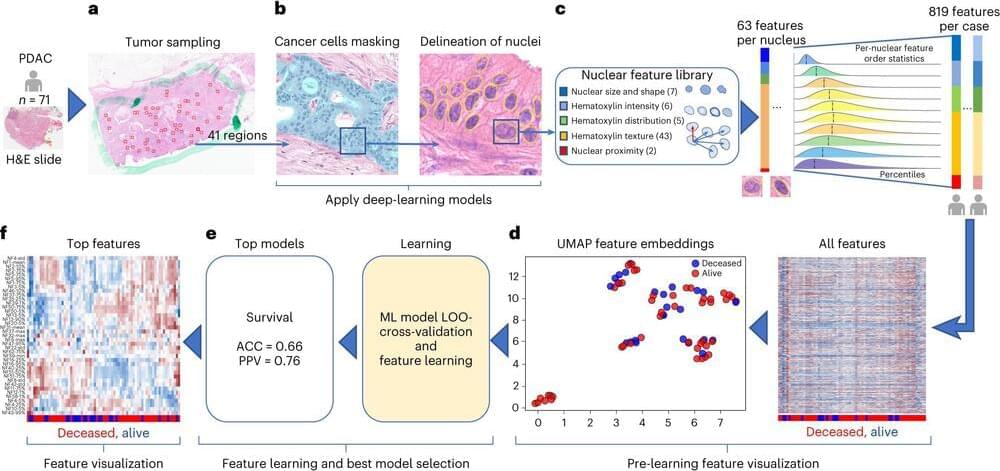Cedars-Sinai Cancer investigators have used a unique precision medicine and artificial intelligence (AI) tool called the Molecular Twin Precision Oncology Platform to identify biomarkers that outperform the standard test for predicting pancreatic cancer survival. Their study, published in Nature Cancer, demonstrates the viability of a tool that could one day guide and improve treatment for all cancer patients.
“Molecular Twin, which we developed at Cedars-Sinai, can be used to study any tumor type, including pancreatic cancer, which is notoriously difficult to treat,” said Dan Theodorescu, MD, Ph.D., director of Cedars-Sinai Cancer and the PHASE ONE Foundation Distinguished Chair, and senior author of the study. “Using our Molecular Twin technology, we anticipate creating tests that can be used even in locations that lack access to advanced resources and technology, pairing patients with the most effective therapies and expanding the availability of precision medicine.”
Investigators used the Molecular Twin platform to analyze blood and tissue samples from 74 patients with the most common and most aggressive pancreatic cancer type, pancreatic ductal adenocarcinoma. The disease begins in the cells lining ducts that carry digestive enzymes from the pancreas to the small intestine.
